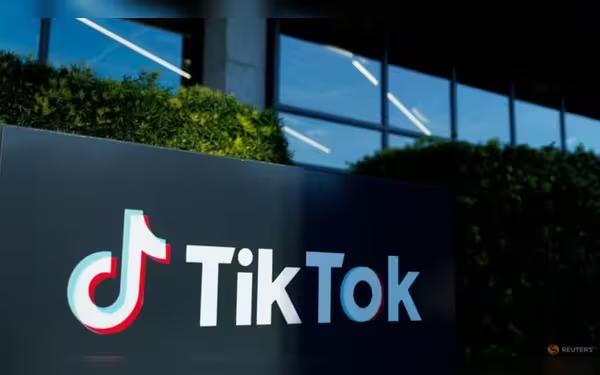Saturday, November 16, 2024 05:27 PM
TikTok Faces Lawsuits from 13 States Over User Safety Concerns
- TikTok accused of harming young users through addictive software.
- Lawsuits claim TikTok misrepresents content moderation capabilities.
- Concerns raised over TikTok's live streaming and virtual currency features.
 Image Credits: channelnewsasia
Image Credits: channelnewsasiaTikTok is sued by 13 states for harming young users and failing to ensure their safety amid growing concerns over its addictive features.
In recent developments, TikTok, the widely popular social media platform, is facing serious legal challenges as 13 U.S. states and the District of Columbia have filed lawsuits against it. These lawsuits, initiated on October 8, 2023, accuse TikTok of causing harm to young users and failing to provide adequate protection for them. The legal actions have been filed in various states, including New York and California, and they aim to hold the Chinese-owned company accountable for its practices.
The states involved in the lawsuits claim that TikTok employs intentionally addictive software designed to keep children engaged with the app for extended periods. This strategy, they argue, is primarily aimed at maximizing advertising revenue. California Attorney General Rob Bonta emphasized this point, stating, "TikTok cultivates social media addiction to boost corporate profits." He further noted that the platform specifically targets children, who may lack the ability to set healthy boundaries regarding their screen time.
New York Attorney General Letitia James echoed these concerns, highlighting the mental health struggles faced by young people due to addictive platforms like TikTok. The lawsuits also allege that TikTok misrepresents its content moderation capabilities, raising questions about the safety of its environment for younger users.
In response to these allegations, TikTok has firmly rejected the claims, asserting that it provides robust safeguards for both teens and parents. The company insists that it is committed to protecting its users, particularly minors, from potential harm. However, Washington D.C. Attorney General Brian Schwalb has raised additional concerns, accusing TikTok of operating an unlicensed money transmission business through its live streaming and virtual currency features. He described TikTok's platform as "dangerous by design," suggesting that it is crafted to keep young users glued to their screens.
Moreover, the lawsuit from Washington alleges that TikTok facilitates the sexual exploitation of underage users, likening its live streaming and virtual currency features to a "virtual strip club with no age restrictions." This alarming comparison underscores the serious nature of the accusations against the platform.
Other states, including Illinois, Kentucky, and Louisiana, have joined the legal battle, reflecting a growing concern over TikTok's impact on youth. This is not the first time TikTok has faced scrutiny; in March 2022, a coalition of eight states, including California and Massachusetts, initiated a nationwide investigation into the platform's effects on young users. Additionally, the U.S. Justice Department filed a lawsuit against TikTok in August, alleging that the company failed to protect children's privacy.
As the legal proceedings unfold, it is clear that TikTok's challenges are far from over. The platform's parent company, ByteDance, is also grappling with a U.S. law that could potentially lead to a ban on the app in the United States. This situation raises important questions about the responsibility of social media companies in safeguarding their younger audiences.
The ongoing lawsuits against TikTok highlight a critical issue in today's digital landscape: the need for stronger protections for young users on social media platforms. As technology continues to evolve, it is essential for both companies and regulators to prioritize the safety and well-being of children in the online space. The outcome of these legal battles may set important precedents for how social media platforms operate and protect their users in the future.













